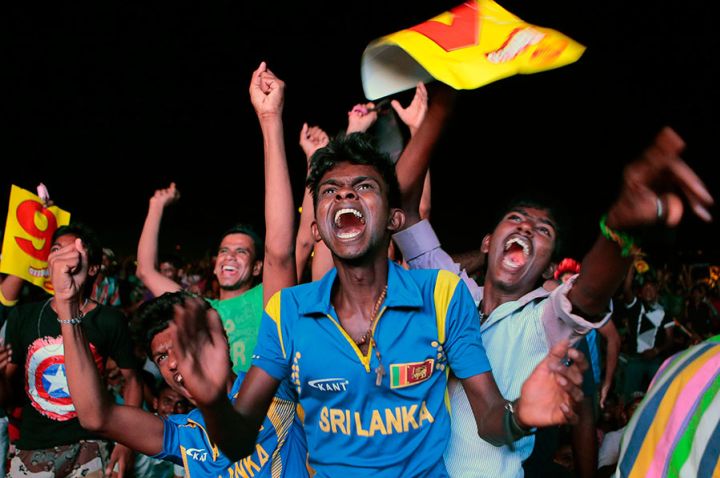Sport's what you make of it
The beauty of sport is that it can take on a variety of meanings, depending on where you stand

These days the focus of much of the world is on the FIFA World Cup underway in Brazil. This particular edition has been particularly popular for being the most exciting in living memory. There have been a huge number of goals and upsets, and no fan could have asked for more. As one person wrote, opposing this World Cup would be like opposing joy.
And yet, there is a constant unease for anyone watching who is aware of political realities in Brazil. The tournament, the government that bid for it, and most importantly the fabulously notorious governing body, FIFA, have all been the object of vociferous protests for well over a year. Citizens have decried the massive spending on infrastructure and organising costs, which could have been used for health, education and other social services. In response, the Brazilian state has been cracking down brutally, with riot police omnipresent in the streets.
It is quite fascinating to see that Brazil has responded this way to a World Cup. After all, not only is the country the most successful in the tournament's history, it is also the one most readily associated with the game's beauty and virtue. The mythology of the World Cup itself has rested on men in canary shirts and the jogo bonito style they are meant to exemplify.
In a way, then, it was perhaps only Brazilian society that could truly and popularly look past the grand meanings constructed for the tournament. Only those who represent jogo bonito could seem to call out the oppression and inequality that goes into the making of a sporting event of great value. It's as if the Brazilians have grasped a meaning all of us can see but are too scared to talk about.
The idea of meaning in sport is very important to me. There was a time when experiencing the overwhelming social and political impact of cricket on Pakistani society meant that I was very invested in the idea of sport as having meaning with a capital M. Yet over the past few years I have come to realise the value of sport having no meaning whatsoever. Take this wonderful observation by Mike Marqusee: "Sports offer a living mixture of the abstract and concrete, the impersonal and the personal, fixed laws and ceaseless spontaneity. The paradox is that precisely because they are empty, impersonal mechanisms without intrinsic meanings, they can be filled by the spectator with all manner of significance."
This insight is particularly useful because it helps explain not just all that we love about modern sport but also all that might make us uncomfortable and disdainful of it. Take, for example, the practice among friends or on social media to describe a drubbing in a sporting contest as a "rape". For the outsider, it is a shockingly disrespectful analogy, but many sports fans would dismiss it saying that it means nothing because it was used in the context of sport.
One reason for such a response might be that fans feel a small, perhaps subconscious, amount of sympathy for someone who watches sport to find an escape, a voice, a reason and a cause for hope. We all enjoy sport for the ability it has to make us completely lose ourselves in it, and so we pardon those whose ecstasy results in objectionable responses.
The truth is that being a fan does not ask you to be hateful, and therefore being hateful is not something that is caused by being a sports fan. What we are watching is a game, but the narratives and inspirations we create are ours. If someone fills that meaning up with hate or abuse, that is their view of the world; it was not caused because they are fans.
As sport becomes increasingly eye-wateringly lucrative, we must be aware and conscious of when the thing we love and the meanings we create are manipulated by others. I am speaking here not just of the bigots but also of sports administrators.
Brazilians are protesting this World Cup not because they dislike goals or attacking play but because they recognise that the meaning they generated is being subverted to exploit them and benefit others. This is not a situation unique to football - cricket has recently had its most nakedly commercial revamp yet, and just about every other major sport is looking to do the same.
Fans in Brazil have realised the power that they have, and they have dared to call out the emperor for his lack of clothes. It is time for the rest of us realise too that taking on those manipulating the game does not equal hating the game. Calling out financial or moral corruption within sport is often seen as being a killjoy, yet it is one of the truest ways of being a fan - being someone who can discern the joy of fandom separately from the manipulation of it.
Ahmer Naqvi is a journalist, writer and teacher. He writes on cricket for various publications, and co-hosts the online cricket show Pace is Pace Yaar. He tweets here
Read in App
Elevate your reading experience on ESPNcricinfo App.